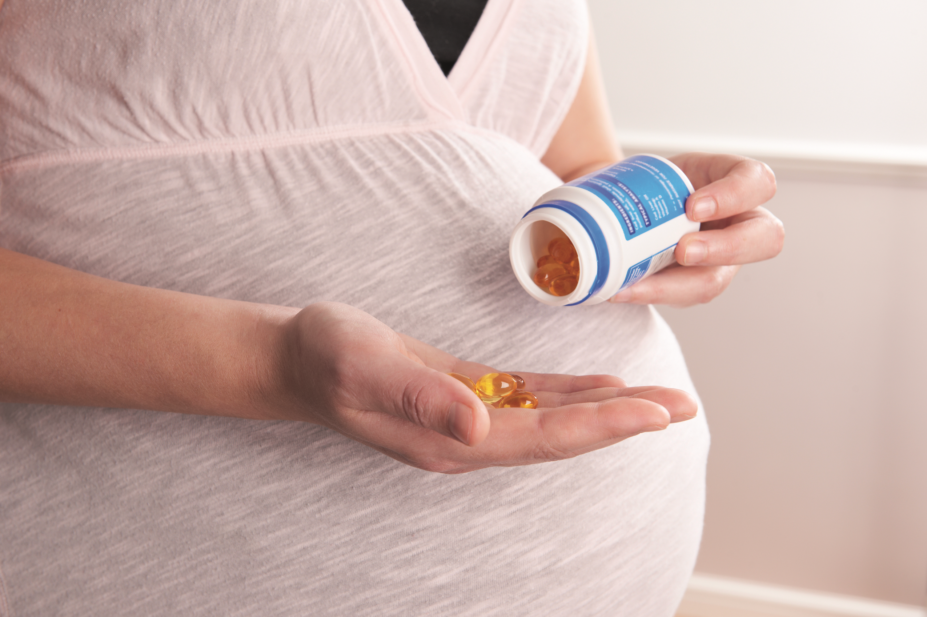
Shutterstock.com
Taking omega-3 fatty acid supplements during pregnancy may protect against asthma in children, results from a study suggest.
Researchers randomly assigned 734 pregnant women to receive 2.4g of n-3 long-chain polyunsaturated fatty acids (fish oil) or placebo (olive oil) and found that children born to women who took the fish oil had a 31% lower risk of developing asthma.
Among the 695 children who were followed until they were five years old, the risk of persistent wheeze or asthma was 16.9% in those whose mothers had taken fish oil compared with 23.7% in the control group.
Hans Bisgaard, founder and head of the Copenhagen Prospective Studies on Asthma (COPSAC) clinical research unit, from which the children were enrolled, says researchers have long suspected a link between low intakes of omega-3 in Western diets and the rising rates of childhood asthma.
“This study proves that they are definitively and significantly related,” he adds.
The researchers used a rapid analysis test to measure two of the key fatty acids – eicosapentaenoic acid (EPA) and docosahexaenoic acid (DHA) – in the blood of the pregnant women before they started and after birth.
The results, published in The New England Journal of Medicine
[1]
(online, 29 December 2016) showed that the protective effect was greatest in the children of women who had the lowest levels of EPA and DHA at the start of the trial before they were given a supplement.
For these women, the supplement reduced their children’s relative risk of developing asthma by 54%.
Ken Stark, co-author and Canada research chair in nutritional lipidomics at the University of Waterloo in Ontario, Canada, says identifying women most deficient in these omega-3 fatty acids and providing them with supplements “should be considered a front line defense to reduce and prevent childhood asthma”. The researchers also found that the fish oil supplements were associated with a 25% reduced risk of infections of the lower respiratory tract, but there was no statistically significant association with asthma exacerbations, eczema, or allergic sensitisation. According to the authors, the incidence of asthma has more than doubled in westernised countries in recent decades and currently affects one in five young children.
Stark explains that it is likely that omega-3 fatty acids help to reduce or moderate the inflammatory response in the airways.
“It has been well established in previous work that omega-3 polyunsaturated fatty acids could reduce the risk of inflammation and allergy, but it has been difficult to prove in clinical studies,” he adds.
“The COPSAC study was likely successful in showing a significant effect due to the large size of the study, a low drop-out rate and extensive phenotyping of the participants.” Stark adds that the dose given in the study was relatively high and more research is needed to determine what dose can be recommended to pregnant women.
Virginia Beckett, a spokesperson for the Royal College of Obstetricians and Gynaecologists (RCOG), says the RCOG would welcome further research but recommended women get omega-3 fatty acids from a healthy diet that includes one to two portions of oily fish a week.
“Long-chain omega-3 is important for women who are pregnant or breastfeeding as it can help a baby’s nervous system to develop,” she says.
“Taking fish oil supplements is not routinely recommended in the UK as fish is an excellent source of nutrients that are good for a woman’s health and the baby’s development.”
References
[1] Bisgaard H, Stokholm J, Chawes BL et al. Fish oil–derived fatty acids in pregnancy and wheeze and asthma in offspring. New England Journal of Medicine 2016; 375:2530-9. doi: 10.1056/NEJMoa1503734


